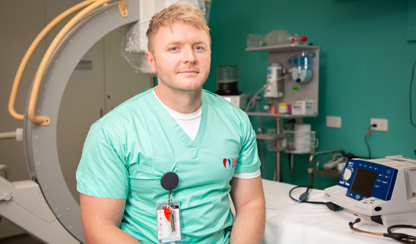01 December 2022
Media release

Baker Institute researchers are embarking on a randomised controlled trial to see how exercise rehabilitation might support people suffering from long Covid following an observational study indicating that it seems to be effective.
The study also highlighted that it is unlikely there is a cardiac cause for impaired exercise capacity, with long-term damage to heart structure and function uncommon.
The Baker Institute is now looking for more than 650 people aged over 40 who have had COVID-19 to take part in this trial to help define the patients who might benefit from exercise rehabilitation, and the degree of benefit. Recruitment sites are up and running in Victoria and Tasmania, with sites in metropolitan Sydney also expected to come online shortly.
The trial comes as researchers compile data from their observational study which looked at associations of long Covid symptoms, impairment of functional capacity and cardiac function in more than 560 patients at Melbourne’s Western Health, one of the areas most impacted by COVID-19 during the pandemic.
An invitation was sent to 3475 people who tested positive to COVID-19 at Western Health in 2021 and 2022. Of the 562 participants, 324 had symptoms greater than 90 days, 65 were symptomatic for less than 90 days and 173 were asymptomatic.
Lead investigator and cardiologist, Professor Tom Marwick said the observational study showed that some people were quite limited in terms of functional capacity and exercise but “it is probably not their heart that is the culprit”. Professor Marwick said the participants seemed to respond to exercise rehabilitation however a robust trial in the form of a randomised control study was needed to determine this.
Professor Marwick said significant subjective functional impairment was documented in 27% of participants, with function more impaired in those with almost all symptoms such as shortness of breath, fatigue and ‘flu-like symptoms’.
He said these participants also had a high prevalence of moderate-severe depressive symptoms. Depression was identified in 39%, with moderate-severe depression in 17%. Depression was significantly associated with ongoing symptoms — especially ongoing sleep disturbance, flu-like symptoms, palpitations and chest pain.
Images of the heart produced by echocardiography showed abnormal cardiac structure and function was uncommon in patients after long Covid.
Professor Marwick said the initial study highlighted that exercise rehabilitation seemed effective and further work was needed to measure the effectiveness of a potential new treatment, to define the patients who might benefit and the degree of benefit.
The initial data from the observational study formed part of a recent submission from the Baker Institute to the Federal Government’s parliamentary inquiry into long Covid.
For further information or to organise interviews please contact:
Tracey Ellis
T: 03 8532 1514
M: 0433 781 972
E: tracey.ellis@baker.edu.au





